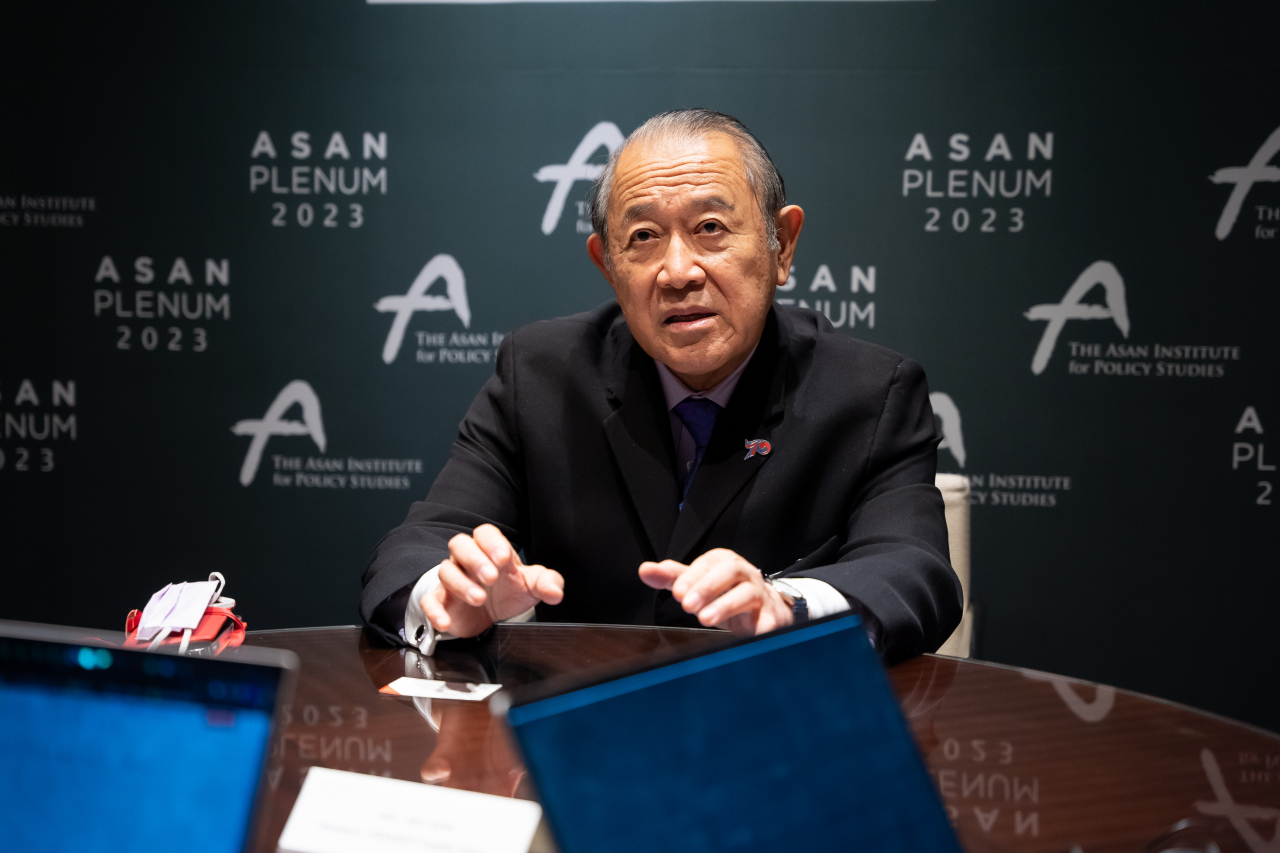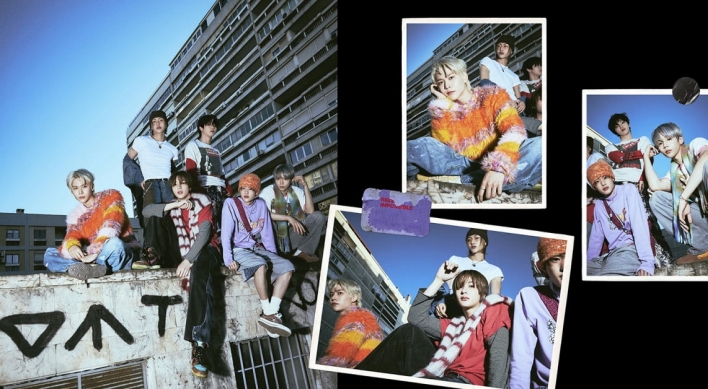S. Korea-Japan thaw changes China, NK mentality: ex-envoy
By Choi Si-youngPublished : April 25, 2023 - 17:33

Closer ties between South Korea and Japan prompted by the recent deal to end a historical feud over Tokyo’s colonial rights abuses will change the way China deals with Seoul-Tokyo efforts to curb North Korea’s growing nuclear ambitions, a former Japanese ambassador to the US said Tuesday.
Referring to the Seoul-Tokyo summit in mid-March, where the two leaders vowed to move past the dispute to fight off North Korea, Ichiro Fujisaki, the Japanese envoy who served as ambassador between 2008 and 2012, said a rapid thaw in relations will lead to a change in mentality for China and even the North as they jointly respond to disarmament efforts.
That is because the two will see South Korea and Japan “can now cooperate on security field as well,” Fujisaki told The Korea Herald on the sidelines of an annual forum hosted by the Asan Institute for Policy Studies in Seoul.
Seoul and Tokyo, working on North Korea’s disarmament as part of a three-way coalition that includes the US, had often been at odds with each other over unresolved historical disputes dating back to Japan’s 1910-45 colonial rule of the Korean Peninsula.
The hurdles thwarting a more united front on the North had enabled “both Pyongyang and Beijing to take it easy for years,” Fujisaki said of international moves to sanction the isolated country defying United Nations Security Council resolutions banning its nuclear and missile programs. Fujisaki also served as Japan’s UN ambassador before his five-year stint as US ambassador.
South Korea and Japan should work harder to avoid unnecessary discord within the three-way coalition, according to the former envoy, who added that such work should especially avoid a return to pre-March summit relations, when they were grappling with a spillover from bickering over historical disputes.
“The important thing is that we try to make Japan-Korea relations to a certain level so that no one can change it, put it back to what it was before,” Fujisaki said, praising President Yoon’s March 6 initiative, which omits an official apology and compensation from Japanese companies held liable for damages for colonial forced labor by a 2018 Korean court ruling.
Yoon’s decision involves using Korean company funds to pay the victims -- a plan many in South Korea still disapprove of, even as they reluctantly agree mending the strained bilateral ties is necessary.
Meanwhile, Fujisaki described enhancing economic exchanges as crucial for “enduring ties” between Seoul and Tokyo.
“I think Korea is very strong (on multiple economic fronts). I think Japan is catching up,” he said, citing cyberspace as an example.
A day earlier, Seoul and Washington announced a joint decision to sanction a North Korean believed to be linked to cybercrimes meant to bankroll Pyongyang’s nuclear and missile programs.
A career diplomat with at least 40 years of experience, Fujisaki is currently president of the America-Japan Society, a private group dedicated to expanding ties. Before the post, he led the Nakasone Peace Institute, a Japanese think tank on global issues, as president.






![[New faces of Assembly] Architect behind ‘audacious initiative’ believes in denuclearized North Korea](http://res.heraldm.com/phpwas/restmb_idxmake.php?idx=644&simg=/content/image/2024/05/01/20240501050627_0.jpg&u=20240502093000)












![[Today’s K-pop] Sunmi to drop single next month](http://res.heraldm.com/phpwas/restmb_idxmake.php?idx=642&simg=/content/image/2024/05/03/20240503050545_0.jpg&u=)